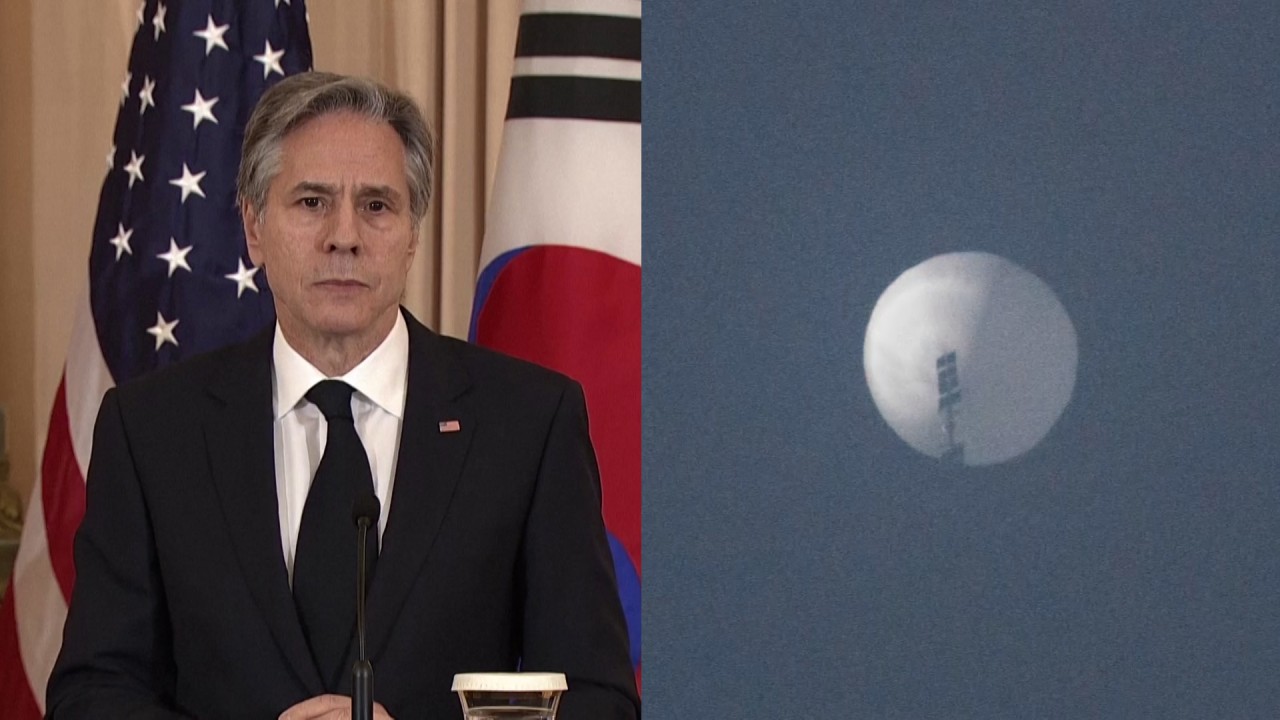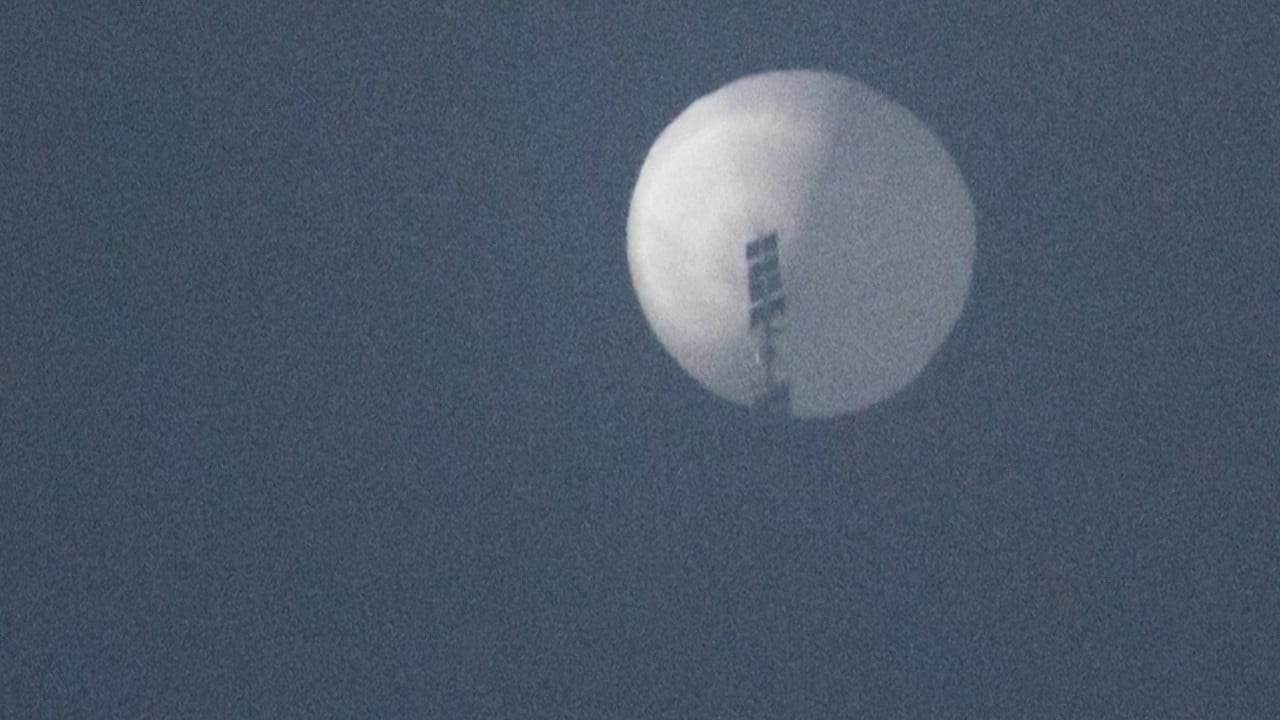
Balloon downing deepens fault lines in China-US relations: analysts
- Both sides will need to tamp down their rhetoric to avoid further unnecessary fallout, Chinese observer says
- The episode highlights ‘the essential fragility and fraught nature of Sino-US relations’
Zhu Feng, a China-US relations expert and international affairs professor at Nanjing University, said the Pentagon admitted that the balloon did not present a military or physical threat to people on the ground and the decision to shoot it down would only strengthen Americans’ perception of China as a threat.
“The US has ceaselessly exaggerated and propagated the ‘China threat’ theory … It is an overreaction that does no good to China-US ties,” Zhu said.
“Both sides need to progressively lessen adversarial rhetoric and action, because it is unnecessary for China and the US to be [further] affected by the finger-pointing [in] this incident.”
Defence Secretary Lloyd Austin said that on Biden’s orders, and in coordination with authorities in Canada, the military waited until the balloon was over US territorial waters off the coast of South Carolina to ensure that the apparatus it was carrying would not threaten people on the ground.
Canadian news network CTV News reported that Ottawa had been tracking the balloon through Canadian airspace since last weekend.
Xu Qinduo, a political analyst at the Pangoal Institution, a Chinese think tank, said the event was “entirely politicised” and a “worrisome example” of the confrontations between the two countries.
“Incidents of foreign objects entering sovereign airspace have occurred in the past and are not unusual, but they were largely handled in a discreet manner,” Xu said.
But he added that Washington’s reaction this time was wrapped in “nationalism” rather than professionalism.
China hits out at US for downing suspected Chinese spy balloon
Pentagon spokesman Pat Ryder said on Thursday that balloons had come close to or crossed over the US border in the past, and that this one did not present a military or physical threat to people on the ground.
Associated Press had also quoted Craig Singleton, a senior fellow at the Foundation for the Defence of Democracies, as saying Chinese surveillance balloons had been sighted on numerous occasions over the past five years in different parts of the Pacific, including near sensitive US military installations in Hawaii.
Beijing said the downing was an overreaction and it “reserves the right to use the necessary means to deal with similar situations”.
Xu, who is also an adjunct professor at Renmin University of China, said ties could deteriorate further in a range of areas, including education, investment and personnel exchanges.
“If it did choose to retaliate, Beijing could take similar action against US assets in the South China Sea or Taiwan. In this sense, US House Speaker Kevin McCarthy’s potential visit to Taiwan could become even more worrisome in destabilising the region as well as damaging the bilateral relationship,” Xu said.
But S. Mahmud Ali, a Sino-US relations scholar at the University of Malaya’s Institute of China Studies, said the takedown was expected and, given domestic criticism of President Joe Biden as too soft on China, any conciliatory moves were “impossible”.
“Facing strong critique from the Republicans, the administration could not respond by allowing the balloon to proceed along the jet stream unmolested,” Ali said.
“It was, after all, seen as collecting intelligence, surveillance and reconnaissance data on the US terrain that it overflew, including several intercontinental ballistic missile silos.”
Ali said the rhetoric on both sides had hardened, especially since the suspension of US Secretary of State Antony Blinken’s visit to Beijing and the “potent military action” of using a fifth-generation fighter jet to fire a precision air-to-air missile at the balloon.
“The episode highlights the essential fragility and fraught nature of Sino-US relations. The essence of this dynamic is structural … the US is determined to retain its sole-superpower status indefinitely,” he said.
Diplomacy could turn rancorous, but Beijing will avoid openly military measures as a means of retaliation, according to Ali, who suggested that Beijing may be prompted to move closer to Moscow.
“At the systemic or grand-strategic level, this could entail deepening Sino-Russian coordination below the level of military cooperation [or] China could encourage and help enable Russia to move towards stabilising the Ukraine conflict, although that would pose complex challenges,” Ali said.



